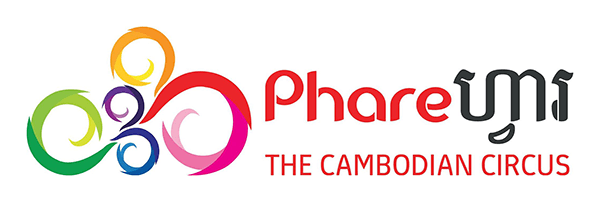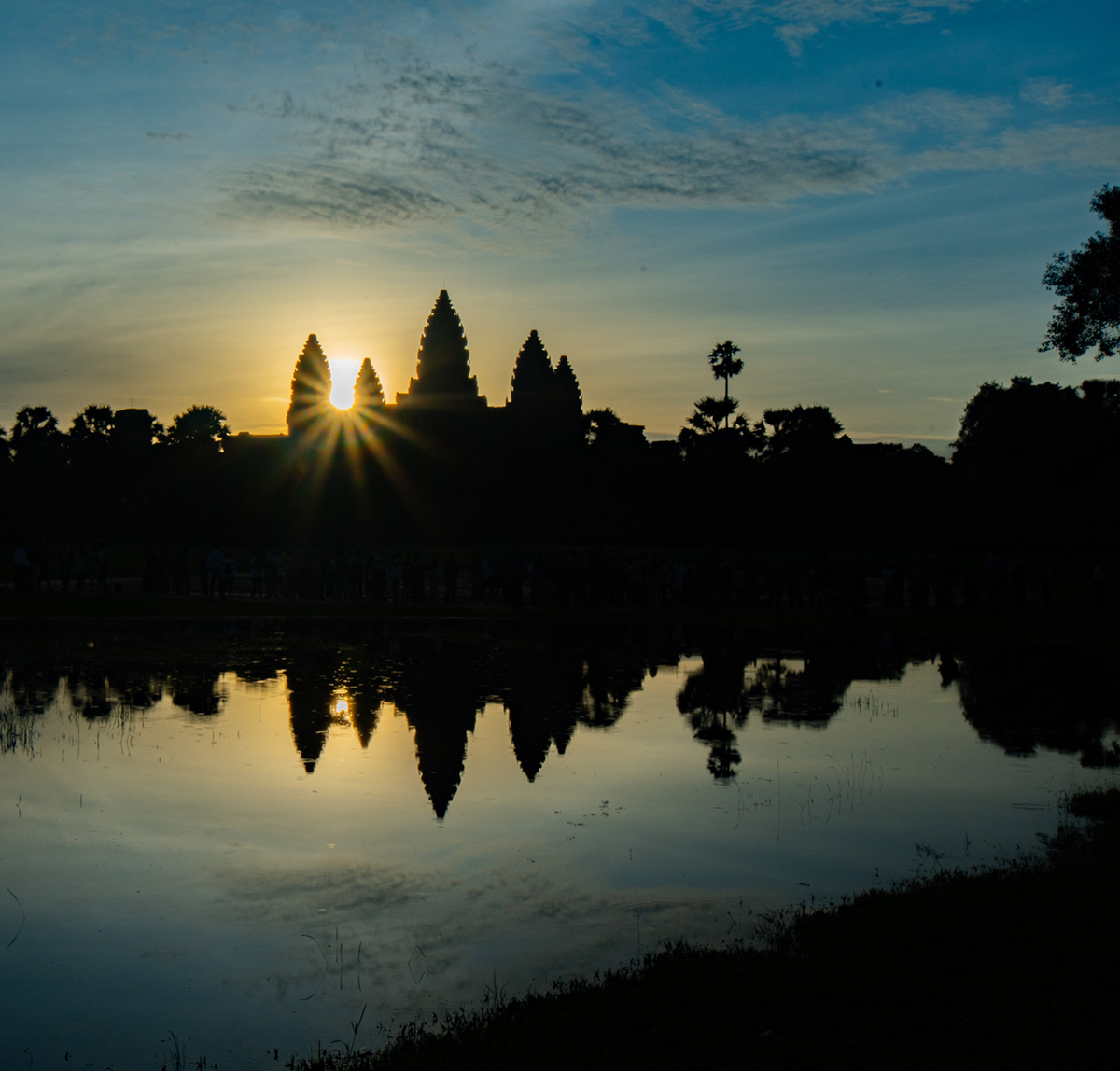When you travel … you mainly think about the beautiful things that are in store for you. Illness, accidents and the like are not really on the agenda. They are not exactly pleasant topics. The information on this page about medical care in Cambodia should help you to do the best possible for your health if the worst comes to the worst.
Note: On this page you will find information on how to protect yourself against diseases in Cambodia. All information is without guarantee. It is up to you whether you get vaccinated or not. You are responsible for your own health.
Diseases in Cambodia
Probably the most common diseases in Cambodia are:
Malaria
The nocturnal anopheles mosquitoes are vectors of malaria. Although Phnom Penh, Angkor and a belt around the Tonle Sap are considered malaria-free, 75 % of the cases are Malaria Tropica, which is not to be trifled with. It’s a shame that the symptoms go hand in hand with regular flu. Rule of thumb: In case of fever, chills, headache, pain in the limbs, diarrhoea etc., consult a doctor immediately (!). Even if you are already at home again.
Unfortunately, there is no hundred percent protection against malaria. Even chemoprophylaxis by taking tablets cannot prevent the disease, but it can at least mitigate it. Alternatively, there are prescription drugs for emergency self-treatment. Whether and which measures are suitable for you can only be recommended by a doctor with experience in the tropics.
Dengue fever
Day-active tiger mosquitoes transmit dengue fever if they are infected themselves. The outbreak of the disease is between 3 and 14 days after the bite. The risk of infection is highest during the rainy season.
There is no vaccination or other medical prophylaxis. You can only protect yourself with covering clothes and mosquito spray. The same applies to dengue: See a doctor immediately if you notice any abnormalities in your health. Even when you are back home.
Diarrhoea / vomiting
Especially in tropical countries like Cambodia, diarrhoea and vomiting are not to ignored. This can be caused by food or drinking water poisoning. Due to the high loss of fluids, dehydration can occur after only a few hours.
Prevention
There are several ways to prevent dehydration. If you take them into account, you can protect yourself as much as possible. However, keep in mind that there is no 100% protection.
Tropical rule
Boil, fry, peel or forget
[Old tropical rule]
The good old “tropical rule” is therefore very simple and protects you from unpleasant illnesses in Cambodia. A few additional tips:
- Never eat food raw.
- Drink water from sealed bottles at best. Don’t be surprised, but be happy if you are given a water bottle in a restaurant without opening it. Only then can you check whether the bottle is still sealed.
- If you are sensitive, do not brush your teeth with tap water.
- Ice cubes: As tempting as it may be in hot Cambodia, the preparation of ice cubes is not always done in the most hygienic way.
Clothes
It is best if your clothes are light and loose and cover your body as much as possible. For better protection, there are specially made clothes that are considered sting-proof. You can buy such clothing – especially trekking trousers – in well-stocked outdoor shops or on Amazon.
Mosquito spray
Even though not all mosquitoes transmit malaria or dengue fever, they can still be a nuisance. A good insect repellent can help. Here you can find products especially for the tropics. Products with the active ingredient Icaridin or DEET (diethyltoluamide) are considered safe mosquito repellents. Products with DEET are considered the safest, but they are more likely to have side effects.
- Active ingredient Icaridin: Autan® Tropcial
- Active ingredient DEET: Nobite
Practical: Nobite also offers a mosquito spray that can be applied to clothing. It is well known that some mosquitoes cannot really be kept away from clothing. There is, however, a small catch: once sprayed on, the garment is adorned with stains that look like grease spots. So maybe don’t spray the most expensive dress with it.
Mosquito net / fly screen
Mosquito nets and fly screens offer protection against mosquito bites and the associated risk of malaria transmission. Air conditioning also helps to ensure that your accommodation is as mosquito-free as possible.
Tip: When booking your accommodation, look carefully at the photos and descriptions. Check for information on mosquito nets and fly screens.
First-aid kit
- Dressing material (scissors, plasters, sterile compresses, gauze bandages, disposable gloves, tweezers, )
- Painkillers (with the active ingredients ibuprofen, ASS or paracetamol)
- Diarrhoea medication (electrolyte powder, medication with the active ingredient loperamide)
- Medicines for travel sickness (with the active ingredient dimenhydrinate)
- Insect repellents (so-called repellents)
- Anti-itching gel for insect bites
- sunscreen, depending on skin type
- Cooling ointment for sunburn
- Preparations for coughs and colds (nasal spray)
- Ointment against inflammations and abrasions
- Medicines for allergies (antihistamines)
- Antimalarials
- Mosquito net (e.g. if you are not staying in a hotel)
- Clinical thermometer
- Medicines that you have to take regularly and tablets against travel sickness should be included in your hand luggage. Then you are on the safe side, even if your suitcase arrives later.
Vaccinations
There is no vaccination requirement for entry into Cambodia. However, this only applies if you are not entering from a country where vaccination against yellow fever is compulsory. You can find out which countries these are on the WHO website.
Vaccinations against tetanus, diphtheria, pertussis (whooping cough), polio (polio), mumps, measles, rubella (MMR), influenza (flu), pneumococcus, hepatitis A and, for long-term stays, hepatitis B, rabies, typhoid and Japanese encephalitis are recommended.
Medical care in Cambodia
Important for your health: The medical care is not comparable to ours. In some places there are no doctors at all who know our medicine. For example, it is no coincidence that Cambodians also travel long distances to have their children treated in one of the hospitals in Siem Reap or Phnom Penh.
Calmette Ambulance (S.A.M.U.)
119 – this is the emergency number, but it is only valid in Phnom Penh. Other numbers for the ambulance are: 023 724 891 or 023 426 948.
Address: No. 3, Preah Monivong (St. 93), 12201, Phnom Penh
Tip: Check with your health insurance company whether and to what extent you and your fellow travellers are insured in Cambodia. To be on the safe side, also ask whether return transport is included in the insurance. A regular health insurance usually only covers a stay of up to 45 days. As soon as you are away for just 1 hour longer, you need additional insurance. Not quite so optimal: You have to book this insurance for your entire stay, including the departure and return flight dates. So not only from the 46th day.
First pay cash in advance
The following applies to medical treatment in Cambodia: Even if you have sufficient insurance, you will have to pay for treatment in advance. The exception is if you are treated as an inpatient in hospital. In this case, your health insurance company will handle the formalities directly with the hospital in Cambodia and pay the costs. In case of doubt, it is worth staying in the hospital for one night. As a rule, the international hospitals are known to health insurers abroad and there are already long-standing cooperations.
Doctors
There used to be a small medical practice in Siem Reap, the British Khmer Clinic, run by a British doctor called Dr Ian Ferguson. However, the website of the practice states that the doctor is back in England and the practice is closed.
As a rule, hotels work together with doctors. Even in simple guesthouses, you can be lucky and ask at the reception desk for a doctor to come to your hotel room. So far we have had very good experiences with a Cambodian doctor. Even the amount on his handwritten bill, which had to be paid in cash directly after the treatment, was covered by our travel insurance without any problems.
Clinics in Siem Reap
Royal Angkor International Hospital
There are many recommendations for this hospital on the web. It is modern, clean, has an outpatient clinic and works together with a partner hospital in Bangkok. Emergency patients who cannot be treated in Cambodia are brought there.
- Address: National Route #6 (Airport Road), Phum Kasekam, Khum Sra Ngea, Siem Reap,Cambodia.
- Tel : (855) 63 761 888, (855) 12 235 888,
- Email : info@royalangkorhospital.com
- www.royalangkorhospital.com
There are separate hospitals for children in Cambodia. If you are travelling with children, you will find help there.
Angkor Hospital for Children
Address: Tep Vong (Achamean) Road and Oum Chhay Street, Siem Reap
Tel: 063 963 409
angkorhospital.org
Jayavarman VII Children’s Hospital
This hospital is one of the hospitals built under the leadership of Dr Beat Richner. Sadly, Dr Richner passed away in 2018.
- Address: Street to Angkor, Siem Reap
- Tel: 855-63 964 803
- www.beat-richner.ch
Clinics in Phnom Penh
Royal Phnom Penh Hospital
- Address: No. 888, Russian Confederation Blvd. Sangkat Toeuk Thla,
- Khan Sen Sok, Phnom Penh, Cambodia
- Tel: +855 (0)23 991 000
- Email: info@royalphnompenhhospital.com
- www.royalphnompenhhospital.com
Clinic in Kampot
Sonja Kill Memorial Hospital (SKMH)
A charity hospital built on the initiative of Dr. Winfried and Rosemarie Kill. Due to a tragic accident, they lost their daughter Sonja and established the foundation of the same name. The costs for treatments are based on the financial circumstances of the patients. Depending on need, patients are treated free of charge.
- Address: National road #3, Kampot
- Tel: +855 12 738888 for emergencies: #078265782
- Email: volunteer@skmh.org
- www.skmh.org

Affiliate*

Phare, the Cambodian Circus
A highlight in Siem Reap! Buy tickets online directly on the Circus Phare website*.
Links and references with a * are an affiliate link (advertising link). If you like Visit Angkor and buy, book or subscribe to something via an affiliate link, the provider will make a small commission for Visit Angkor. Of course, there are no additional costs for you.
Join our Facebook group
International travel group with friendly people who love Cambodia. We speak English, German and a little Khmer.
By the way: We write here at Visit Angkor with a lot of passion and love. Nevertheless, it can happen that information is no longer up to date or perhaps even incorrect. We would be happy to hear from you so that we can update the information accordingly. Thank you very much!


